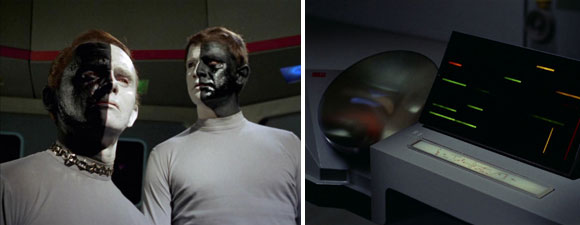Star Trek: A Cultural History Book Review
4 min read
Star Trek: A Cultural History
by M. Keith Booker
Book Description:
“First airing in 1966, with a promise to ‘boldly go where no man has gone before,’ Star Trek would eventually become a bona fide phenomenon. Week after week, viewers of the series tuned in to watch Captain Kirk, Spock, and the rest of the crew of the USS Enterprise as they conducted their five-year mission in space. Their mission was cut short by a corporate monolith that demanded higher ratings, but Star Trek lived on in syndication, ultimately becoming a multibillion-dollar media franchise. With merchandise spin-offs, feature films, and several television iterations—from The Next Generation to Discovery—Star Trek is a firmly established part of the American cultural landscape.
“In Star Trek: A Cultural History, M. Keith Booker offers an intriguing account of the series from its original run to its far-reaching impact on society. By placing the Star Trek franchise within the context of American history and popular culture, the author explores how the series engaged with political and social issues such as the Vietnam War, race, gender, and the advancement of technology. While this book emphasizes the original series, it also addresses the significance of subsequent programs, as well as the numerous films and extensive array of novels, comic books, and merchandise that have been produced in the decades since.
“A show that originally resonated with science fiction fans, Star Trek has also intrigued the general public due to its engaging characters, exciting plotlines, and vision of a better future. It is those exact elements that allowed Star Trek to go from simply a good show to the massive media franchise it is today. Star Trek: A Cultural History will appeal to scholars of media, television, and popular culture, as well as to fans of the show.”
Book Set-up:
- The Star Trek Franchise (with abbreviations used in the text)
- Introduction: Star Trek – Past, Present, and Future
- Chapter 1: Star Trek and the History of Star Trek
- Chapter 2: Star Trek and the History of American Science Fiction
- Chapter 3: Star Trek and American Political History
- Chapter 4: Star Trek and the History of Technology
- Chapter 5: Star Trek and the History of Star Trek Fandom
- The Episodes: An Opinionated Compendium
- Notes
- Bibliography
- Films Cited
- Index
- About the Author
The Review/Verdict:
Unlike many books about Star Trek history which deal strictly with the series and its personalities, Star Trek: A Cultural History plugs the series history into the times during which the series were made.
Covering all of the series, but with a very heavy emphasis on the original series, readers get to see how Star Trek fit into the world of the 1960s and beyond; comparing it to other television shows airing during that time, as well as to other sci-fi and shows and films which aired around the same time. For older readers who watched Trek first run, this is probably old news; but for readers born after the first run of the show, they should find that placing Trek within its first run time-frame lets them see where the show stands out and where it falls short.

No book on Trek’s cultural history would be complete without analyzing how the show handled contemporary issues at the time. Those issues are described and while Trek handled some of them well (A Private Little War), others were not handled so well (Let That Be Your Last Battlefield). Much of this has been discussed before by seasoned Trek fans.
The Trek and technology section discussed the computers, the space race and new technology of the time and Trek’s creation and use of technology. Was Trek positive towards computers, for example, or wary? Think about shows such as The Ultimate Computer, and The Return of the Archons.
The section on fandom covered most of the ways fans interact; via writing, creating art or film, and conventions. Of course merchandise was a large part of Trek; from the early fanzines to modern-day high quality costuming. The one thing in fandom that wasn’t addressed, and that I rarely see in any books or video documentaries, is discussion of Star Trek fans interacting with each other online at various messageboards or social media, not just at conventions.
Overall, this was an interesting book. I wasn’t sure if I would like it; especially as I was a kid in the 1960s who knows a lot of the cultural history. But it was an easy and fairly quick read and it held my interest until the end. I think for fans born after the 1960s, especially those from the 1980s on, this book would be useful for understanding the show as you need to know the context of the time to truly judge a show properly.
Don’t forget to read the episode guide. Each episode is described and the author’s true opinion of each one is provided. It’s pretty amusing and even if I disagreed with some of his picks and pans; it was fun to read.
By the way, for fans of Mad Men, Mr. Booker has penned a Cultural History of that as well.
Book Information:
Author: M. Keith Booker
Publisher: Rowman & Littlefield Publishers
Publication Date: September 15, 2018
ISBN-13: 978-1538112755
ISBN-10: 1538112752
Pages: 208
Star Trek: A Cultural History is available as a hardcover for $35.00 or a Kindle book for $33.00. To order, head to the link located here.





